Praise for The Emotional Life of Your Brain
The Emotional Life of Your Brain is an eye-opener, replete with breakthrough research that will change the way you see yourself and everyone you know. Richard Davidson and Sharon Begley make a star team: cutting-edge findings formulated in a delightful, cant-put-it-down read. I loved this book.
Daniel Goleman, Ph.D., author of Emotional Intelligence
This superb book is many thingsa crystal clear tour of the neuroscience of emotion; a primer about how the scientific process works; a personal story by a really likable guy; and the promise of a better world. This is a wonderful book.
Robert M. Sapolsky, Ph.D., author of Why Zebras Dont Get Ulcers and Monkeyluv
Whether he is measuring neural activity in the laboratory or climbing the Himalayas to meet the Dalai Lama, Davidson is an inveterate explorer who has spent a lifetime probing the deep mystery of human feeling. Dont miss this smart and lively book by the worlds foremost expert on emotion and the brain.
Daniel Gilbert, Ph.D., author of Stumbling on Happiness
The best book I know on how to use the exciting discoveries of neuroscience to change your life. A fabulous reada scientific adventure story like Sherlock Holmes meeting Watson and Crick with the Dalai Lama as their adviser.
Jack Kornfield, Ph.D., author of The Wise Heart
A mind-opening journey guided by one of the worlds great pioneers in the study of emotion. Richard Davidson addresses the questions about how we become who we are with a scientific rigor and impassioned curiosity that enable us to understand others and ourselves, as well as to directly influence how we approach life with a sense of resilience and vitality. He also crucially reveals the science-proven steps we can take to improve the function and even the structure of our brain. Soak in the wisdom of these pages and enjoy!
Daniel J. Siegel, M.D., author of Mindsight
What a gift from the worlds leading neuroscientist who works on what makes life worth living. This is a must-read for everyone who is interested in positive psychology.
Martin E. P. Seligman, Ph.D., author of Learned Optimism and Flourish
Richard Davidson, a visionary neuropsychologist, joins with Sharon Begley, one of the most astute science writers, to illuminate the dimensions of our emotional makeup and offer cogent and compelling ways for us to grow into more effective and fulfilled selves.
Jerome Groopman, M.D., author of How Doctors Think
Richard Davidsons distinguished scientific career has been dedicated to making sense of human emotion and deepening its significance. Now, with the help of writer Sharon Begley, he turns a trove of accumulated facts into wisdom accessible to lay readers and directly applicable to their lives.
Antonio Damasio, M.D., Ph.D., author of Self Comes to Mind and The Feeling of What Happens
In this spine-tingling journey through the hills of the Himalayas and the circuitry of your brain, visionary neuroscientist Richard Davidson uncovers deep and practical insights into humanitys oldest questions. Who are we as individuals? What are the origins of our minds? How do we find peace and cultivate greater kindness for all? Weaving together the latest neuroscience of brain plasticity and emotion and the timeless wisdom of Buddhist thought, The Emotional Life of Your Brain will lead you to answers to these questions, and leave you inspired by science and the promise of change for the better.
Dacher Keltner, Ph.D., author of Born to Be Good
Richard Davidson and Sharon Begley have created a pioneering look at the brain chemistry of our emotions. By looking at Davidsons scientific proof that meditation and other cognitive practices actually change the brain, the authors enable all of us to genuinely modify our most difficult emotional habits and create new and more fruitful ones. Look forward to cultivating keener attention, having more attunement to others, and being more connected to your own intuition. Its all possibleand this book shows you how.
Deepak Chopra, M.D., author of How to Know God
Based on the latest brain research, this book gives us a new way to understand ourselves and others, and includes exercises to help us make positive changes in how we react to life events. A must-read for those who want not only better understanding of their emotional life but also the possibility of changing how they deal with the world.
Paul Ekman, Ph.D., author of Emotions Revealed,
Emotional Awareness (with the Dalai Lama), and Telling Lies
THE
EMOTIONAL
LIFE OF YOUR
BRAIN

HOW ITS UNIQUE PATTERNS AFFECT THE WAY YOU THINK,
FEEL, AND LIVEAND HOW YOU CAN CHANGE THEM
RICHARD J. DAVIDSON, Ph.D.
with SHARON BEGLEY

HUDSON STREET PRESS
Published by the Penguin Group
Penguin Group (USA) Inc., 375 Hudson Street, New York, New York 10014, U.S.A. Penguin Group (Canada), 90 Eglinton Avenue East, Suite 700, Toronto, Ontario, Canada M4P 2Y3 (a division of Pearson Penguin Canada Inc.) Penguin Books Ltd., 80 Strand, London WC2R 0RL, England Penguin Ireland, 25 St. Stephens Green, Dublin 2, Ireland (a division of Penguin Books Ltd.) Penguin Group (Australia), 250 Camberwell Road, Camberwell, Victoria 3124, Australia (a division of Pearson Australia Group Pty. Ltd.) Penguin Books India Pvt. Ltd., 11 Community Centre, Panchsheel Park, New Delhi 110 017, India Penguin Group (NZ), 67 Apollo Drive, Rosedale, Auckland 0632, New Zealand (a division of Pearson New Zealand Ltd.) Penguin Books (South Africa) (Pty.) Ltd., 24 Sturdee Avenue, Rosebank, Johannesburg 2196, South Africa
Penguin Books Ltd., Registered Offices: 80 Strand, London WC2R 0RL, England
First published by Hudson Street Press, a member of Penguin Group (USA) Inc.
First Printing, March 2012
10 9 8 7 6 5 4 3 2 1
Copyright Richard J. Davidson and Sharon Begley, 2012
All rights reserved
Illustrations by Dave Barash
 REGISTERED TRADEMARKMARCA REGISTRADA
REGISTERED TRADEMARKMARCA REGISTRADA
LIBRARY OF CONGRESS CATALOGING-IN-PUBLICATION DATA
Davidson, Richard J.
The emotional life of your brain : how its unique patterns affect the way you think, feel, and liveand how you can change them / Richard Davidson with Sharon Begley.
p. cm.
Includes bibliographical references and index.
EISBN: 9781101560570 1. Emotions.2. Change (Psychology).3. Brain.I. Begley, Sharon, 1956II. Title.
BF531.D33 2012
152.4dc23 2011036483
Printed in the United States of America
Set in Century Old Style MT
Without limiting the rights under copyright reserved above, no part of this publication may be reproduced, stored in or introduced into a retrieval system, or transmitted, in any form, or by any means (electronic, mechanical, photocopying, recording, or otherwise), without the prior written permission of both the copyright owner and the above publisher of this book.
PUBLISHERS NOTE
While the author has made every effort to provide accurate telephone numbers and Internet addresses at the time of publication, neither the publisher nor the author assumes any responsibility for errors, or for changes that occur after publication. Further, publisher does not have any control over and does not assume any responsibility for author or third-party websites or their content.
Next page
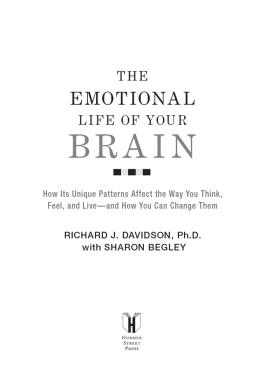

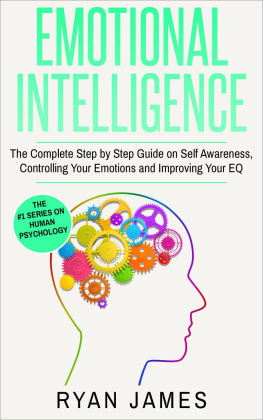
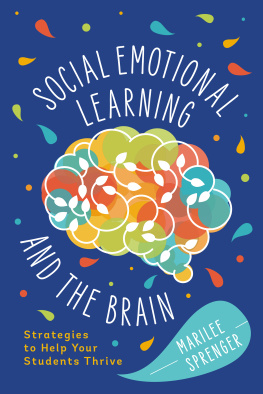

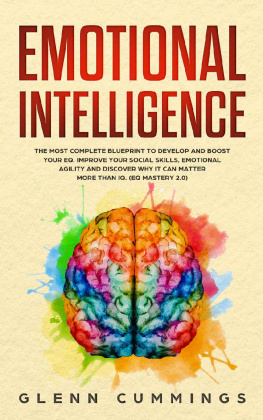

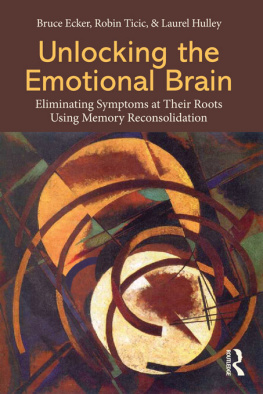


 REGISTERED TRADEMARKMARCA REGISTRADA
REGISTERED TRADEMARKMARCA REGISTRADA